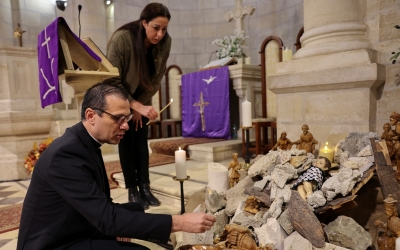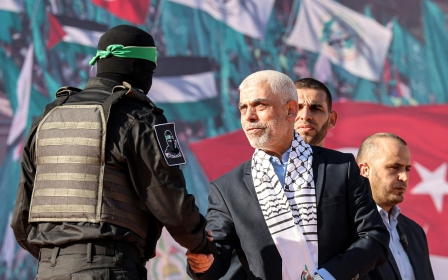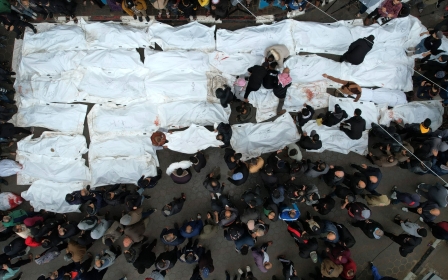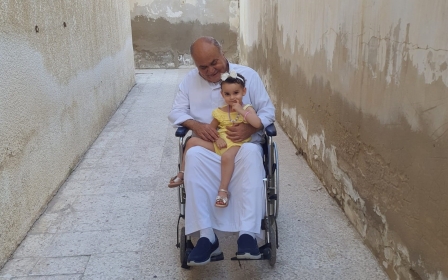War on Gaza: Bethlehem pastor's Christmas sermon condemns those 'complicit in Gaza genocide'
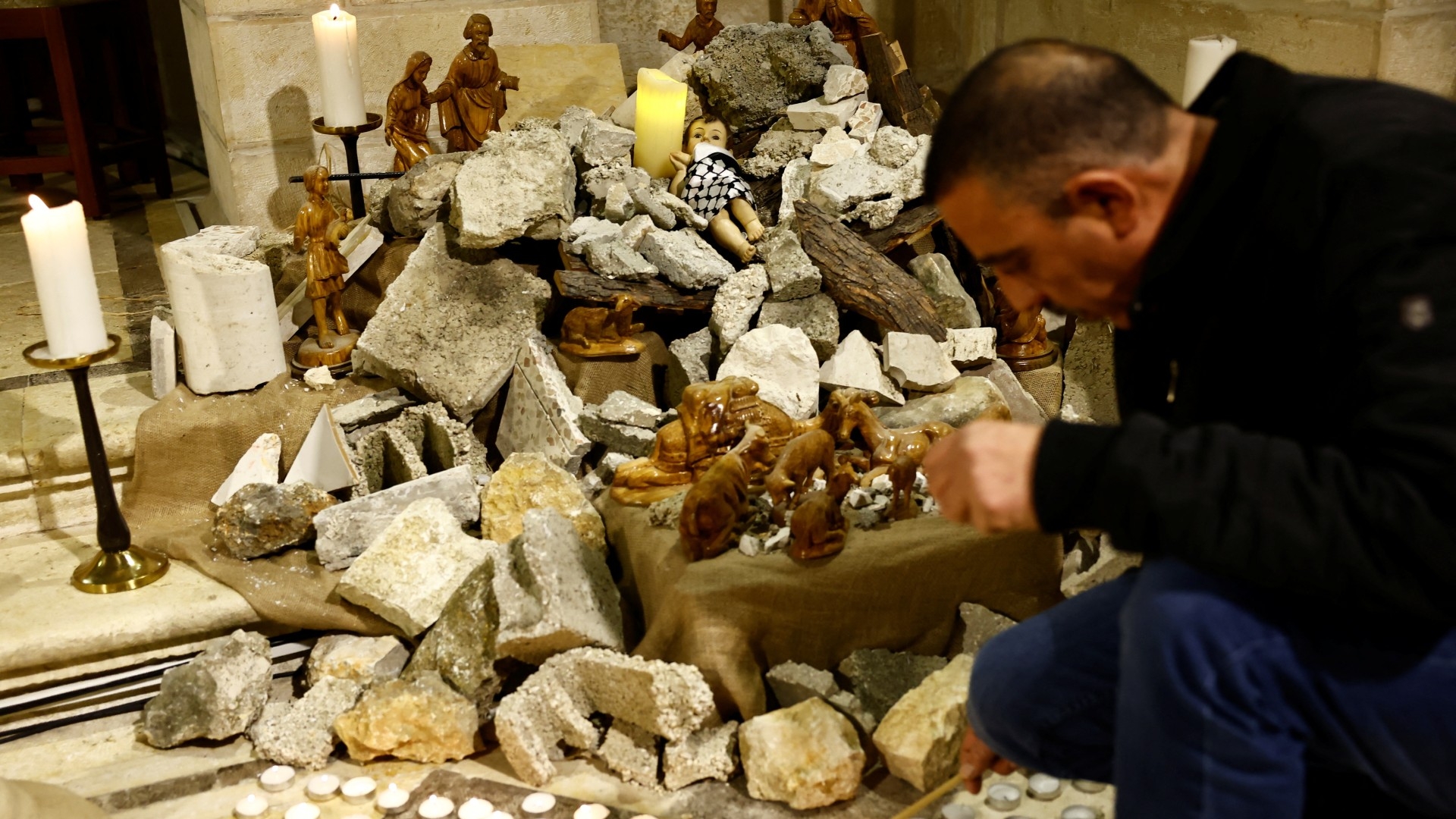
In a Christmas message from the occupied city of Bethlehem on Sunday, Palestinian Christian pastor Munther Isaac delivered an address in which he said the current war on Gaza was "the biggest blow", and that Christians would not accept words of "delayed remorse".
The sermon, made on Christmas Eve, came after Isaac previously stated that all Christmas celebrations in the birthplace of Jesus would be cancelled, as Israel continues to bombard the besieged enclave for the third month.
Isaac said that, this year, Christ was "under the rubble" due to the bombings in Gaza and as Israeli forces also continued to carry out raids across the occupied West Bank, including in Jenin.
"We are angry. This would have been a time of joy. Instead, we are mourning, fearful. More than 20,000 have been killed. Thousands more are under the rubble," he said.
He added that close to 9,000 children have been killed by Israel since the start of the war on 7 October and that 1.9 million Palestinians have been displaced.
To a sombre-looking congregation in Bethlehem's Evangelical Lutheran Christmas Church, he called Israel's bombardment on Gaza an "annihilation" and a "genocide".
"We are tormented by the silence of the world. Leaders of the so-called 'free' world have lined up to give the green light for this genocide against a captive population. They gave the cover. Not only did they agree to pay the bill in advance, they veiled the truth," he said.
Israel is "weaponising the Bible against us", Isaac said, and "dehumanising and demonising" the Palestinians.
"This war has confirmed to us that the world does not see us as equal. Maybe it's the colour of our skin... even our kinship to Christ does not shield us, we are not human in their eyes," he said.
In the church, a figurine of Jesus was placed amidst rubble in the corner instead of a typically festive Christmas tree.
'We will not accept your apology'
Isaac also used the sermon as an opportunity to send a message to churches around the world that have remained silent and continue to celebrate Christmas without acknowledging what is happening in Gaza.
"We are outraged by the complicity of the church. Let it be clear, silence is complicity. And empty calls for peace without a ceasefire and an end to occupation and the shallow words for empathy without direct action are all complicity," he said.
"If you are not opposed to what is happening in Gaza, if you are not shaken to your core, there is something wrong with your morality."
He also said that the correct terms should be used when referring to what is happening in Gaza, to not downplay the killings of Palestinians.
"If you fail to call this a genocide, this is on you, this is a sin and darkness you are willingly embracing," he said.
"Despite the immense blow we have endured, we as Palestinians will recover, we will rise and stand up again from the midst of destruction. Although this is by far the biggest blow we have received in a long time."
Isaac also said that Palestinian Christians would not forgive people who remain silent and only offer condolences and words of support later.
"For those who are complicit, will you ever recover from this? Your charity and your words of shock will not make a difference after all of this... we will not accept your apology after the genocide.
"I want you to look in the mirror and ask, where was I when Gaza was going through a genocide."
Earlier this month, Christian leaders and municipal authorities said they had decided to cancel all public festivities, stating it was "not appropriate".
The patriarchs and heads of the churches in Jerusalem have asked Christians to refrain from "unnecessarily festive" Christmas activities. Catholic churches in Galilee have made a similar request.
The president of the Council of Local Evangelical Churches in the Holy Land, Munir Kakish, said the decision came due to "the thousands killed - and in prayer for peace". He added that "we will only hold traditional services and devotionals on the meaning of Christmas".
Middle East Eye propose une couverture et une analyse indépendantes et incomparables du Moyen-Orient, de l’Afrique du Nord et d’autres régions du monde. Pour en savoir plus sur la reprise de ce contenu et les frais qui s’appliquent, veuillez remplir ce formulaire [en anglais]. Pour en savoir plus sur MEE, cliquez ici [en anglais].


